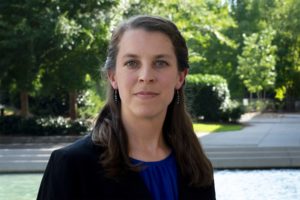The Bachelor of Science in Audiology and Speech-Language Pathology (SLP) undergraduate program is designed to introduce undergraduates to the fields of Audiology and Speech-Language Pathology and to prepare them for applying to graduate school. This program is a joint undergraduate degree program offered between the Department of Theory and Practice in Teacher Education at the University of Tennessee, Knoxville (UTK) and the Department of Audiology and Speech Pathology at the University of Tennessee Health Science Center (UTHSC).
Admissions, Tuition and Fees, and Financial Aid Information
The BS degree is set up in a 3+1 format where the first 3 years are completed through UTK and the last year (Senior Year) is completed through UTHSC (administered by UT Memphis but physically located on campus at UTK.)
SLPs must complete a Master’s degree in order to practice and Audiologists must complete a doctoral degree in audiology (e.g. AuD). After the Master’s degree, SLPs may also choose to continue their education and receive a clinical Doctoral Degree (e.g., SLPD; approx. 2-3 years) or a Research Doctoral Degree in Communication Sciences and Disorders (e.g., PhD).
Undergraduate coursework includes classes in:
- Biology
- Linguistics
- Math and statistics
- Physics/acoustics or chemistry
- Psychology and cognitive science
We highly recommend getting involved in research during your undergraduate program. Aside from getting hands-on experience with how the research process works, you may also get to help design components of research projects, help with data collection from actual clients/patients, learn how to score, transcribe, or code client/patient responses, and/or have the opportunity to present at local conferences. Research experience looks really great on your CV/resume for graduate school or post-graduation jobs and can allow you to make invaluable connections with professors, graduate students, and other undergraduate students.
Unsure where to start? Here are some professors who love to have undergraduate students volunteer with their research. Each website has more information about what kinds of things you might get to do in that lab and how you can contact them to indicate you’re interested. Note: There are not enough spots for everyone who is interested so the earlier you reach out, the greater your chances of getting in.
Adult Language and Brain Lab
Directed by Dr. Eun Jin Paek, PhD
- The Adult Language and Brain Lab uses cognitive and language assessment tools and technology to measure and deliver interventions for adults with and without dementia and primary progressive aphasia. (Specifically interested in recruiting Freshman and Sophomores)
- https://www.uthsc.edu/asp/research/alab.php
Augmentative and Alternative Communication and Literacy (UT-AACL) Laboratory
Directed Dr. Jillian McCarthy, PhD
- The mission of UT-AACL lab is to examine and develop new evidence-based language and literacy assessments and interventions to assist users of AAC, their families, and educational staff.
- https://www.uthsc.edu/asp/research/ut-aacl.php
Autism Social Development Lab
Directed by Dr. Erinn Finke, PhD
- Research in this lab focuses on social and friendship interactions for individuals with Autism Spectrum Disorder (ASD) and informs interventions that prepare individuals with social and language impairments to interact with their peers. Methods include eye-tracking and conversational analysis when playing video games. Additional projects examine the romantic relationships of adolescents and young adults with ASD and friendship interactions for girls with ASD.
- https://www.uthsc.edu/asp/research/asd.php
Speech-Language Pathologists, Language, and Perspective-Taking (SLP) Research Lab
Directed by Dr. Kristen Secora, PhD, CCC-SLP
- The SLP Research lab focuses on the intersections between speech-language pathologists’ preparation and practice, children’s language abilities, and skills associated with perspective-taking, with a particular focus on working with Deaf and Hard of Hearing students and their families.
- https://tpte.utk.edu/outreach-and-engagement-centers-and-projects/slp-research-lab/
Still have questions about whether or how to get involved in research? Contact AUSP Program coordinator, Dr. Kristen Secora (ksecora@utk.edu).
Admission into graduate school typically requires:
- A minimum cumulative GPA of 3.00 (including transfer work and any dual enrollment completed)
- Note: many graduate programs have much higher average GPAs for their admitted students
- Graduate Record Examination (GRE) scores
- An essay and/or biosketch
- Letters of recommendation
Other recommendations for preparing for graduate school:
- Pursue opportunities to work with faculty in research labs
- Select desired graduate programs early to familiarize yourself with the admission requirements (one way to search for programs: https://find:asha.org/ed)
- Schedule a campus tour of the graduate program

Kristen Secora, assistant professor
Faculty contact: Kristen Secora, assistant professor
Email: ksecora@utk.edu